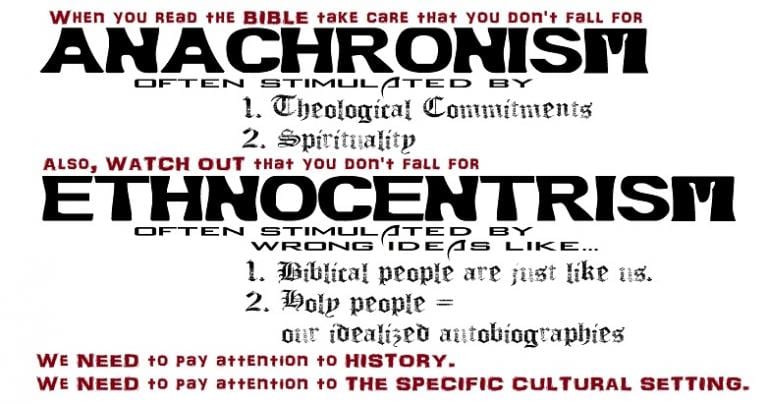
Pregnancy can be deadly in the Bible, but honorable people might lie about it in order to save face and lives, and this is on display in Matthew 1—2.
In our previous post, we spoke about how Matthew 1—2 is a horror story. We explored the dire circumstances poor Matthean Mary languished under, the threat of honor killing. Far from Christmastime joy, cheerfulness and merrymaking, her pregnancy occasioned terror. Indeed, the Matthean Infancy Narrative is just one of many Biblical tales of terror.
Horrific Pregnancy & “Quiet” Divorce
Let’s jump back into the story of this horrific and shameful pregnancy, as there is so much to unpack—
Matthew 1:18-19—
This is the origin of Jesus, Messiah: when his mother Mary was betrothed to Joseph, but before they lived together, she was found with child [through a holy spirit]. Joseph her husband, since he was a righteous man, yet unwilling to expose her to shame, decided to divorce her quietly.
“Divorce her quietly”—what does that mean? Is anything ever quiet in the Middle East? Context Scholar John Pilch reminds us that things are always very loud there, and as we explained last time, in the Biblical world, everybody’s business is sticking their nose into everybody else’s business! So a better translation would be, “Joseph… decided to divorce her leniently.”
Shameful Pregnancy & Uncovering Her Head
Where does this “lenient” divorce originate? What does it involve?
Numbers 5:12b-19—
If a man’s wife goes astray and becomes unfaithful to him by virtue of a man having intercourse with her in secret from her husband and she is able to conceal the fact that she has defiled herself for lack of a witness who might have caught her in the act; or if a man is overcome by a feeling of jealousy that makes him suspect his wife, and she has defiled herself; or if a man is overcome by a feeling of jealousy that makes him suspect his wife and she has not defiled herself—then the man shall bring his wife to the priest as well as an offering on her behalf, a tenth of an ephah of barley meal. However, he shall not pour oil on it nor put frankincense over it, since it is a grain offering of jealousy, a grain offering of remembrance which recalls wrongdoing.
The priest shall first have the woman come forward and stand before Yahweh. In an earthen vessel he shall take holy water, as well as some dust from the floor of the tabernacle and put it in the water. Making the woman stand before Yahweh, the priest shall uncover her head and place in her hands the grain offering of remembrance, that is, the grain offering of jealousy, while he himself shall hold the water of bitterness that brings a curse…
Uncovering or Unbraiding?
Let’s carefully observe what is being prescribed here. Pilch and friends explain that “uncover her head” actually means “unbind her hair.” So “uncovered” can also mean “unbraided,” which it does here as with Paul, seen momentarily. Braided hair on women meant “she’s married!”—for biblical Mediterranean women, anyway. Whereas the married status of United States women ordinarily can be determined by her worn ring, in the biblical world it is communicated by hairstyle. Braided means married; loose hair means not married.
For a biblical woman to go about in public with loose hair would be as shameful as if her head was shaved. Were a married woman in the ancient Mediterranean be out in public with her hair unbraided, this would automatically bring shame to her husband and his father. So in second wave Jesus groups married women, even though in domestic settings for worship, were still expected to go by public rules when praying and prophesying.
Context, context, context! This information reveals the irony of so-called “Traditionalist Catholics” who obsess about veils and “traditional” head-coverings. They tend to be quite ignorant about mistranslations and recontextualizations through the centuries that gave rise to observances found nowhere in Scripture. (We don’t have to trash these practices, but let’s not be ignorant or make ludicrous claims that they have biblical mandate!) When Paul writes about women’s heads being “uncovered” it’s about braided hair being loose, and has nothing at all to do with veils (1 Corinthians 11:3-16).
The whole discussion in this section of 1 Corinthians is all about married women keeping their hair braided in public. There is nothing there about veils! In Numbers 5 the unbraiding of a woman’s hair in deals with marriage and its status.
Shameful Pregnancy and Being Degraded “Leniently”
So returning to Numbers 5—
Numbers 5:19-24—
Then the priest shall adjure the woman, saying to her, “If no other man has had intercourse with you, and you have not gone astray by defiling yourself while under the authority of your husband, be immune to this water of bitterness that brings a curse. But if you have gone astray while under the authority of your husband, and if you have defiled yourself and a man other than your husband has had intercourse with you”—so shall the priest adjure the woman with this imprecation—“may Yahweh make you a curse and malediction among your people by causing your uterus to fall and your belly to swell! May this water, then, that brings a curse, enter your bowels to make your belly swell and your uterus fall!” And the woman shall say, “Amen, amen!”
The priest shall put these curses in writing and shall then wash them off into the water of bitterness, and he will have the woman drink the water of bitterness that brings a curse, so that the water that brings a curse may enter into her to her bitter hurt.
Pilch breaks all this down. In a nutshell, a local priest humiliatingly and degradingly commands an accused woman to swear by oath to her innocence. Then she must drink a nasty concoction of dirt and her very words. Nothing should happen to her if she is innocent. But if she has been “defiled” then she will be subject to the effects of the curse and physically will take on all the indicators of normal pregnancy.
Pregnancy Under the Curse!
Pilch explains that by saying “Amen, amen!” she is placed under the curse. Then she drinks the horribly disgusting drink. Should she be pregnant, she will be forever a curse in her village. But if she is innocent then she will be free to have children and live her life—once she finishes vomiting.
So this is what Joseph is considering doing to Mary in Matthew 1:18-19—lenient divorce (not “quiet” divorce). In the Bible, “lenient” can mean horrible and degrading.
Dealing with Shameful Pregnancy through Dreams
Then something confusing to Western readers happens—
Matthew 1:20—
Such was his intention when, behold, the angel of the Lord appeared to him in a dream and said, “Joseph, son of David, do not be afraid to take Mary your wife into your home. For it is through a holy spirit that this child has been conceived in her…
How do Biblical people find solutions to crises and catastrophes they find themselves in? According to John Pilch, in the same way as do about 80 percent of people alive today on planet earth—by dreams, trances, and visions. These are technically called Alternate States of Consciousness. All human beings can and do experience them regularly and routinely—with the exception of some, like mainstream Americans, who block them. Reports of ASC experiences can be found throughout the Bible, from Adam’s sleep in Genesis (Genesis 2:21; compare Isaiah 29:10; 1 Samuel 26:12) to the trances and sky journeys of John of Patmos (Revelation 1:10; 4:2; 17:3; 21:10).
These panhuman experiences—dreams and visions—help human beings with earth-shattering problems. Pilch says God hardwired us for them. When the cerebral cortex turns off by them, these trance experiences can help us make new associations, and new directions unconsidered become available. Impossible situations suddenly are granted resolution, and vital knowledge, unreachable otherwise, suddenly is made accessible.
A Good Spirit Caused this Pregnancy
So according to “Matthew,” what did Joseph discover from his altered state of consciousness experience?
Matthew 1:20
…the angel of the Lord appeared to him in a dream and said, “Joseph, son of David, do not be afraid to take Mary your wife into your home. For it is through a holy spirit that this child has been conceived in her. She will bear a son and you are to name him Jesus, because he will save his people from their sins.”
Earlier we explained that the cultural world of the Bible has no understanding of impersonal causality. There is no Hebrew way to say, “It rained.” Instead it is, “God sends the rain,” or “God gives the rains,” etc. Whenever something happens in the Bible (e.g., pregnancy), the question is never “What happened?” but rather “Who did it?” Therefore here again, our English translations betray us and our ancient ancestors in the faith.
So it is always a personal cause whenever in the Bible something happens. But what happens when cannot find a human who, a human person, who done it? Well, then it has to be caused by an other-than-human-person. In other words, spirits. The God of Israel is such an other-than-human-person.
So Joseph, via his ASC experience, arrives at a new direction. Who caused this pregnancy? The dream informed Joseph it was an other-than-human-person who was responsible. But it was not a mischievous spirit, or a malevolent spirit, who did this. It was a good other-than-human-person—one sent from God, a holy wind-person—who was responsible for Mary’s pregnancy.
The Way Out
And Joseph learns the sex of the child without any access to amniocentesis. Not only that, Joseph is able to learn the sex of the child, and even the name that he will give the boy.
“…you are to name him Jesus, because he will save his people from their sins.”
Now let’s jump to verse 24—
Matthew 1:24
When Joseph awoke, he did as the angel of the Lord had commanded him and took his wife into his home.
A lot is said in that little sentence. Joseph wakes up. He has his solution. He does what God commands him to do through God’s messenger. And from last time, we learned what “taking the wife into the home” means. Nothing is private in this world. The whole village will be present at the celebration. And the bloody sheet must be presented publicly.
What Did the Matthean Joseph and Mary Do?
Now we arrive at the big question of this post—how in the world did the Matthean Joseph save Mary and her unborn child out of her horrific situation? The dream told him what to do. In order to fulfill what God commanded (“…do not be afraid to take Mary your wife into your home”), what would the couple have to do on the wedding day? Remember the cultural auxiliary background information—they must produce the blood-soaked sheet. So what did they do? The answer should be clear. THEY LIED.
“Matthew” expects his audience to get this high context narrative. Joseph took Mary into his home, i.e., with his groomsmen, the week plus celebration that follows, the whole shebang. And at some point Mary and Joseph would disappear. And out they would come with the faked tokens of virginity. That’s a lie, folks.
“HE HATH BLASPHEMED!”
I can hear it now…
“MARY CANNOT LIE! SHE IS UNSTAINED BY SIN! SHE NEVER SINNED ONCE IN HER LIFE!”
A kind request. Please, let us all calmly remember that in the Mediterranean world of the Bible, the core cultural value is honor. Pilch, Bruce Malina, and the Context Group explain that honor means a public claim to worth and others publicly acknowledging this claim. In the world of the Bible, no one is born without some honor rating.
What is your honor rating?—whatever you are born, that is your honor rating. Your energies in life must be spent maintaining this ascribed honor. Honor is the most important thing in the world of the Bible. You can literally do anything to defend and maintain it.
By the way, all “sin” in the Bible is shaming God. Mary never shamed God. And this story does not claim that. And yes, we have a more developed understanding of sin. It’s laden with two millennia of theological freight unknown to “Matthew” and the Holy Family. Watch your ethnocentric anachronism.

Shameful Pregnancy & Defending Honor
What do you think the ascribed honor is of a village peasant bastard whose mother was found shamefully pregnant? Certainly not that of the Messiah, or Cosmic Lord, or Son of God! Jesus’ terribly low ascribed honor is why “Matthew” opens his Gospel with seventeen verses of a manufactured genealogy. This was made up long after his resurrection. As we’ve shown convincingly, it’s completely different and irreconcilable with the other invented genealogy found in “Luke.” This is not ancestry.com—this is explanation for why Jesus really was the Son of God!
In the Middle East people do anything to preserve the honor of their family. Pilch and friends inform us that their first strategy at safeguarding honor is, if an outsider gets too close, they will keep secrets from them.
But should the outsider dare to get even closer, then the Middle Eastern person will deceive them. And if the outsider gets even closer, the Middle Eastern person will assuredly lie. The Context Group have shown convincingly that secrecy, deception, and lying are legitimate strategies for defending and preserving reputation or honor. The Gospels showcase examples of this.
Consider Jesus’ parable of the two sons (Matthew 21:28-32). To the second of his two sons, the Father commands, “Go into my vineyard to work.” So the boy responds, “Yes, I am going, Father!” And he does not go. He never intended to go. And why would he lie to his father? So he can honor him. Therefore he tells his father what he desires to hear. As Pilch was fond of saying, in the world of the Bible, what you say is far more important than what you do.
Ask a traditional Palestinian directions to somewhere that he is oblivious about. Do you think he will admit to you his ignorance, thereby bringing shame to his family? Guaranteed, he will give you directions, ones made up on the spot. He does this to save your life—he wants to neither shame his family nor yours. He doesn’t wish to kill you. So he lies to you. He is no liar. But he lies, see?
The Wedding Guests All Know
The village of the Matthean Joseph and Mary are not stupid. None of the wedding guests are hoodwinked by the faked blood-stained sheet. They all are well aware, as the narrative informs us, that Mary was pregnant before this wedding took place. They all know that Mary is pregnant and not by Joseph. And none declare Joseph a liar. No one wants machetes to come out, right? Honor and lives are saved.
Joseph thought there were only two ways, both terrible. Then Joseph was informed of this third way from his ASC experience. Are you, reading this, appalled? Does it not suit your highly evolved morality? Does it chafe your Catholic piety? Should Joseph have told everyone the truth, stood firmly on his Israelite male privilege and declared “MARY DESERVES TO DIE!”? What if, in this tiny village, his only remaining female cousin is Mary? Ought Joseph to be right, yet single, all his days? As Pilch says, Joseph chose to lump it and get on with his life.
The Middle Eastern world of the Bible is a celebration of inconsistency—saying one thing, and meaning a completely other thing. That’s the parables, folks! For the outraged reading this, a grave reminder about living life from my friend and teacher, John Pilch: INCONSISTENCY will help you have a happy life. CONSISTENCY will take you to Jonestown, Guyana.
No Divorce, Says Prepaschal Jesus
Taking all of this, we can see more clearly why Jesus is against (Middle Eastern) divorce. Jesus is a Middle Eastern male, folks. He is not a romantic, a post-modern, post-Industrial Westerner. Anti-introspective, the prepaschal Jesus did not concern himself about the sensitive feelings of the partners or the children. But nonviolent Jesus was indeed concerned about blood feud in his agonistic cultural world. Tear two families apart in the Middle East, feud is born. This escalates easily into bloody violence, and tiny villages like Bethlehem and Nazareth go extinct when that happens.
So prepaschal Jesus was “stay married and lump it.” No divorce, says Jesus.
Almost Christmas, folks. Next time, we talk about prophecies concerning virgins.
















